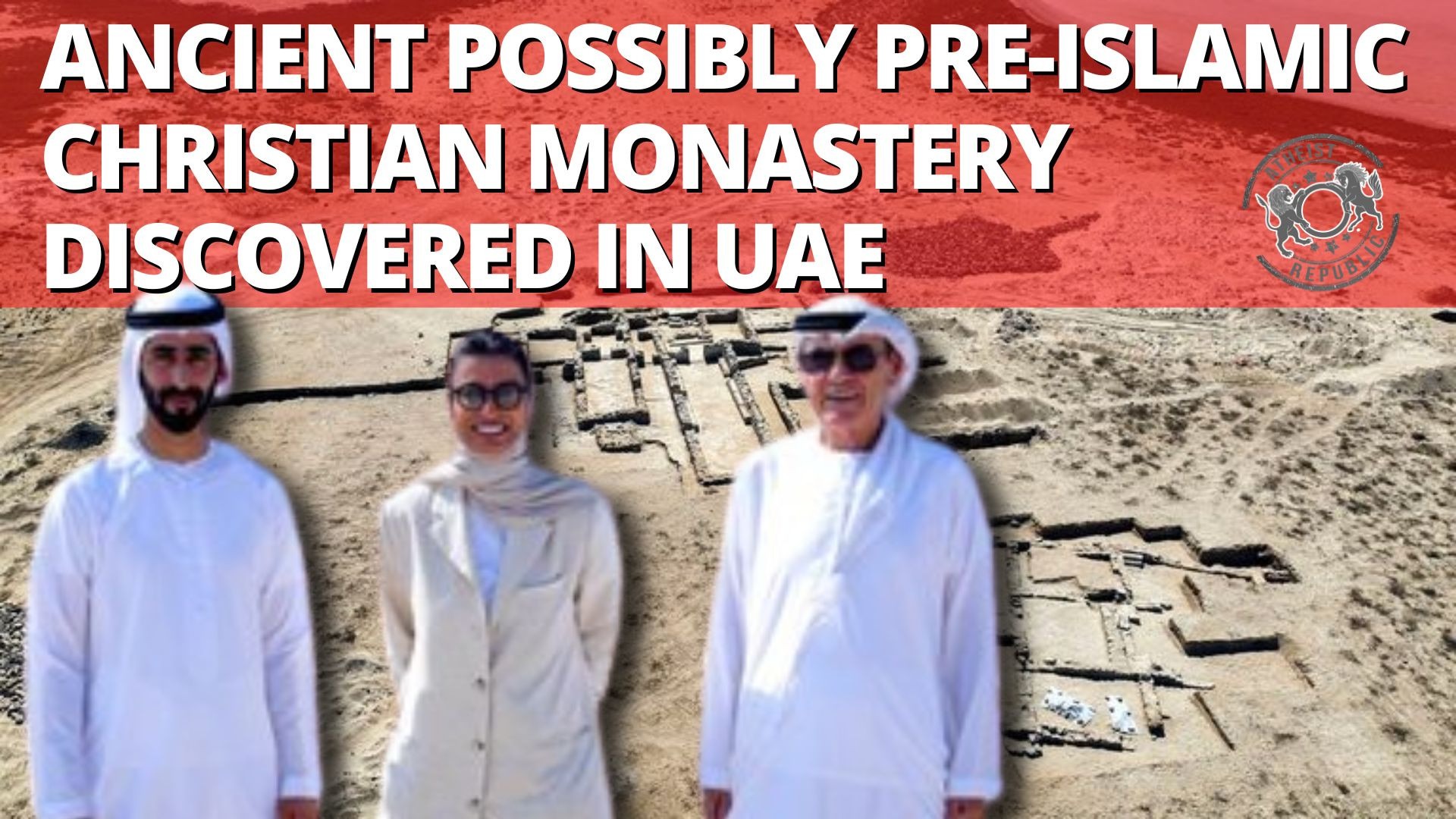
An ancient Christian monastery possibly pre-dating Islam has been found on Siniyah Island off the coast of the United Arab Emirates, officials said on November 3rd.
Ancient Christian monastery discovered in Umm Al Quwain https://t.co/8Oonkd67mg pic.twitter.com/OhLmcnfm23
— UAE News (@UAENews) November 3, 2022
Located on Siniyah Island, part of the Emirate of Umm Al Quwain, the monastery possibly dates back to the years before Islam spread across the Arabian peninsula. It was the second monastery discovered in the Emirates after archeologists found the first Christian monastery in the country on Sir Bani Yas Island in the early 1990s.
The two monasteries became lost to history as the Christians in the region slowly converted to Islam as the new religion continued to spread throughout the Arabian Peninsula and beyond. Today, Christians remain a significant minority in various countries in the Middle East. Pope Francis visited Bahrain recently to encourage interfaith talks between Muslim leaders.
Archeologists carbon-dated samples from the ancient monastery's foundations. These samples determined that the monastery was founded between 534 and 656 AD. Prophet Muhammad was born around 570 AD and passed away in 632 AD after conquering Mecca in Saudi Arabia.
The ancient monastery's floor plan showed that early Christian adherents worshiped within a church at the monastery that only had a single aisle. The rooms inside the monastery also showed a baptismal font, a nave that held an altar and a communion wine installation, and an oven for baking bread and wafers for communion rites. The site also contains a second building with four rooms and a courtyard next to the monastery, which possibly served as a home for an abbot or a bishop.
Very interesting: a Christian monastery has been found on Siniyah Island, off the coast of the UAE, dating from 534-656 AD. This adds to the data that Christianity was much more widespread in the Arabian Peninsula than the traditional narratives about Islam's origins suggest. pic.twitter.com/17rqVhFMGB
— Kyle Orton (@KyleWOrton) November 6, 2022
The UAE's Culture and Youth Ministry partially sponsored the excavation, with the country's culture and youth minister Noura bint Mohammed Al Kaabi visiting the site on Thursday. The ancient monastery also received a visit from Sheikh Majid bin Saud Al Mualla, son of the ruler of Umm Al Quwain and the chairman of the emirate's Tourism and Archeology Department. A collection of buildings, possibly belonging to a pre-Islamic village, according to archeologists, were also located a few hundred miles from the monastery.
While the monastery on Siniyah Island was the second to be discovered in the UAE, it's not the only pre-Islamic church in the Middle East. Historians said churches and monasteries spread from the Persian Gulf to the coasts of Oman, reaching as far as India. Archeologists have also discovered similar monasteries in other Muslim countries like Bahrain, Iraq, Iran, Kuwait, and Saudi Arabia.
Timothy Power, an associate archeology professor at the United Arab Emirates university, aided in studying the newly-discovered monastery and called the UAE a "melting pot of nations."
“The fact that something similar was happening here a 1,000 years ago is really remarkable, and this is a story that deserves to be told,” Power also said.
He also added that the ancient monastery site would be fenced off to protect the area. However, what other things from the past lie buried under the island's sands would remain a mystery.
“It’s a really fascinating discovery because in some ways it’s hidden history — it’s not something that’s widely known,”Power also noted.
